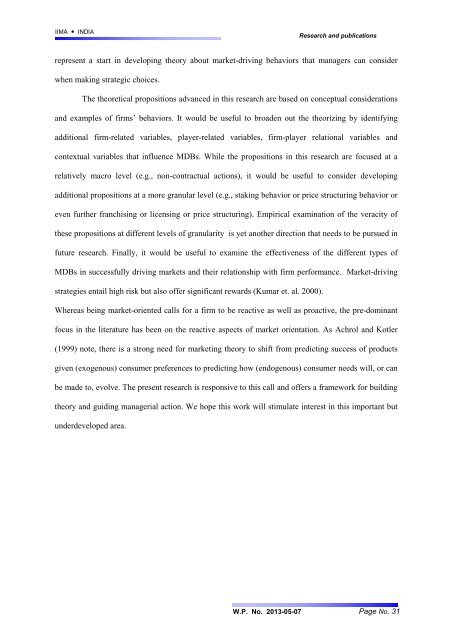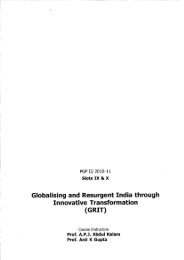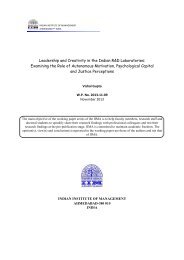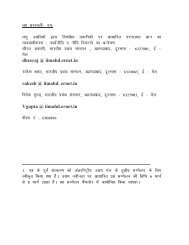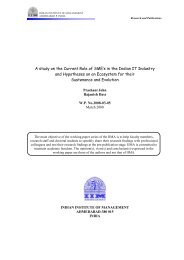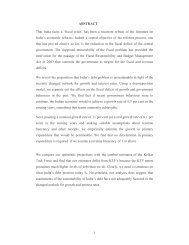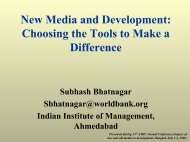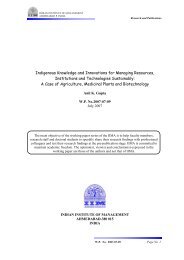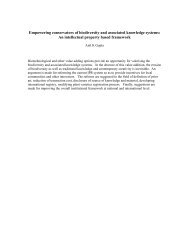to Download (English) File - Indian Institute of Management ...
to Download (English) File - Indian Institute of Management ...
to Download (English) File - Indian Institute of Management ...
Create successful ePaper yourself
Turn your PDF publications into a flip-book with our unique Google optimized e-Paper software.
IIMA INDIA<br />
Research and publications<br />
represent a start in developing theory about market-driving behaviors that managers can consider<br />
when making strategic choices.<br />
The theoretical propositions advanced in this research are based on conceptual considerations<br />
and examples <strong>of</strong> firms’ behaviors. It would be useful <strong>to</strong> broaden out the theorizing by identifying<br />
additional firm-related variables, player-related variables, firm-player relational variables and<br />
contextual variables that influence MDBs. While the propositions in this research are focused at a<br />
relatively macro level (e.g., non-contractual actions), it would be useful <strong>to</strong> consider developing<br />
additional propositions at a more granular level (e.g., staking behavior or price structuring behavior or<br />
even further franchising or licensing or price structuring). Empirical examination <strong>of</strong> the veracity <strong>of</strong><br />
these propositions at different levels <strong>of</strong> granularity is yet another direction that needs <strong>to</strong> be pursued in<br />
future research. Finally, it would be useful <strong>to</strong> examine the effectiveness <strong>of</strong> the different types <strong>of</strong><br />
MDBs in successfully driving markets and their relationship with firm performance. Market-driving<br />
strategies entail high risk but also <strong>of</strong>fer significant rewards (Kumar et. al. 2000).<br />
Whereas being market-oriented calls for a firm <strong>to</strong> be reactive as well as proactive, the pre-dominant<br />
focus in the literature has been on the reactive aspects <strong>of</strong> market orientation. As Achrol and Kotler<br />
(1999) note, there is a strong need for marketing theory <strong>to</strong> shift from predicting success <strong>of</strong> products<br />
given (exogenous) consumer preferences <strong>to</strong> predicting how (endogenous) consumer needs will, or can<br />
be made <strong>to</strong>, evolve. The present research is responsive <strong>to</strong> this call and <strong>of</strong>fers a framework for building<br />
theory and guiding managerial action. We hope this work will stimulate interest in this important but<br />
underdeveloped area.<br />
W.P. No. 2013-05-07 Page No. 31


